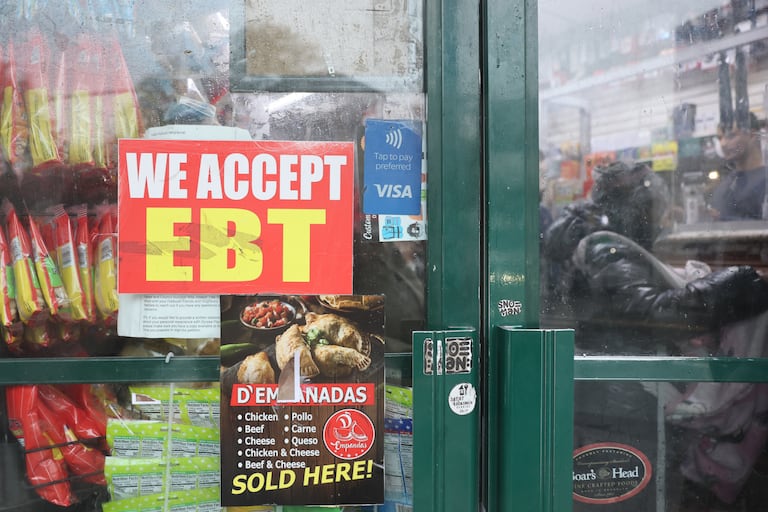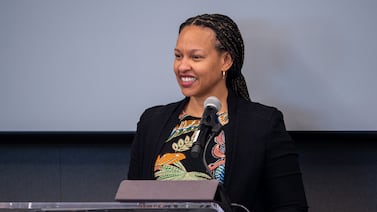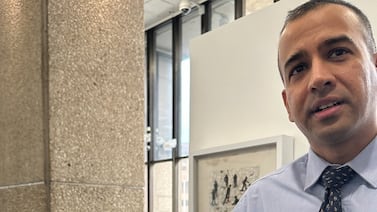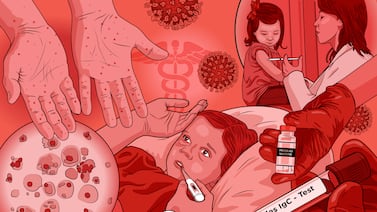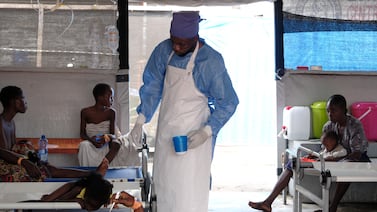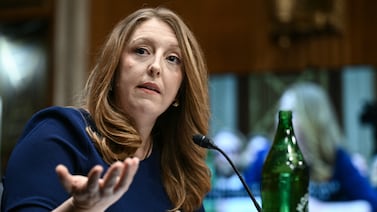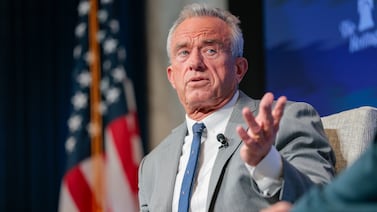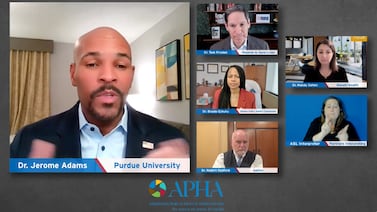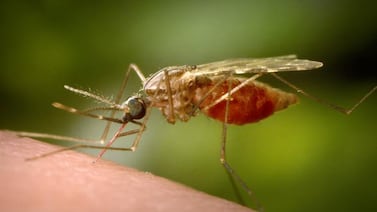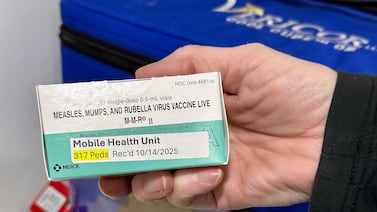As of Sunday, some New Yorkers will need to prove they’re working or studying for at least 80 hours a month or risk losing benefits. The city is scrambling to help people understand the new federal rules.
We're hosting a free community breakfast and conversation to hear directly from the people serving the community in these tumultuous times for public health. We'd love to see you there.
A budget agreement includes what’s referred to as Article 6 of the Public Health Law and aims to restore $60 million in core public health services from an original $90 million that was cut under former Gov. Andrew Cuomo in 2019.
In an interview with Healthbeat, Morse reflects on this challenging moment in public health as Dr. Alister Martin, an emergency room physician in Boston, prepares to take the helm of the health department.
Public health leaders see this year’s World Cup as the world’s largest temporary migration into the United States’ most densely populated urban corridor. They are planning accordingly.
State health investigators determined that the Bryan County patient exposed 'several dozen' other people in Georgia to the virus.
Patient advocates say state administrators in Iowa appear to be reining in Medicaid spending by cutting what are known as home and community-based services for people with disabilities.
The United States has signed 19 one-on-one health agreements directly with African governments since dismantling the U.S. Agency for International Development last year.
Outbreak centered in Spartanburg County reaches 990 cases. Spring break travel worries state officials.
Healthbeat examined the backgrounds of the 10 surgeons general confirmed since 1976. Here's a look at their education and experience.
Despite the increasing prominence of the anti-vaccine movement on social media and in politics, polls conducted in the past few months show that the American public still thinks highly of immunization efforts.
As of Sunday, some New Yorkers will need to prove they’re working or studying for at least 80 hours a month or risk losing benefits. The city is scrambling to help people understand the new federal rules.
There are likely more people who aren't in quarantine but should be, unaware they’ve been exposed during the normal course of their lives: Going to work, school, and church, shopping for groceries, dining out.
Rick Jackson points to his company’s pandemic response - providing health workers during the emergency - as proof of leadership. Experts say his state contracts could pose ethical challenges if he wins.
Former CDC Directors Tom Frieden, Robert Redfield and Mandy Cohen, and former Surgeon General Jerome Adams discuss how to address public health amid partisan rancor.
As the U.S. enacts increasingly authoritarian policies and decimates funding for public health, insurance, and medical research, many nurses have felt the draw of Canada’s progressive politics, friendly reputation, and universal health care.
The spread of mosquito-borne diseases across southern and central Europe (and North America, too) seems inevitable.
Long hours from front-line epidemiologists and a recent increase in vaccinations is credited for declining measles cases. But state official warns: 'It’s not nearly over yet.' And spring break is on the way.
We're hosting a free community breakfast and conversation to hear directly from the people serving the community in these tumultuous times for public health. We'd love to see you there.
As AI systems grow more capable, many experts are wondering whether the risks outweigh the benefits. Some of those risks are distant, but catastrophic. Others are happening right now at a smaller scale.
CDC Advisory Committee on Immunization Practices was supposed to meet this week. Medical groups fear upcoming vote could limit vaccines for poor kids.
As U.S. hospitals face an increasing risk of encountering measles, and pressure to immediately spot it, health care workers face an unusual barrier: Many don’t know what it looks like.
The Education Department has used a series of interagency agreements to move important functions to other agencies as part of President Donald Trump’s efforts to dismantle the department.
Why do some hospitals have far better maternal outcomes than others – even serving similar patients? It comes down to leadership, accountability, and implementation, says Stanford's Dr. Elliott Main.
A budget agreement includes what’s referred to as Article 6 of the Public Health Law and aims to restore $60 million in core public health services from an original $90 million that was cut under former Gov. Andrew Cuomo in 2019.

